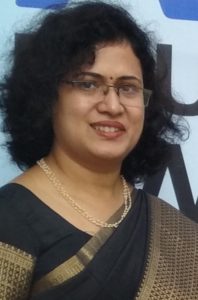
Education is a journey which gives the art of living, not just the livelihood. It makes us learn how to grow our life and be more creative. Education makes us understand our conflicts, writes Rakhi Chitnis, Research scholar, Sri Satya Sai University of Technology and Medical Sciences, Sehor (Bhopal), Madhya Pradesh, for Elets News Network (ENN).
“Planets are cultivated by civilization and men by Education” — J. J Rousseau, Genevan philosopher, writer and composer.

What is education? Answer to this question is multidimensional. It is the process of acquiring knowledge, skills, values and habits. Swami Vivekananda rightly said about the education once: “Education is the manifestation of the perfection already in the men.”
Education is a journey which gives the art of living, not just the livelihood. It makes us learn how to grow our life and be more creative. Education makes us understand our conflicts. Thus education is not merely learning of facts but is to training our mind to think. Education systems must provide opportunities to each and every individual to learn through experience and should help to develop critical thinking and problem solving skills.
If we through light on the history of Indian education system, we can categorise it in four generations from Gurukul to today’s age of digital learning.
Education 1.0 is the system of Gurukul began around third century BC. This education system was teacher centric education system where sages and scholars impart the knowledge verbally. They taught mantras and Vedas. Different sections of society like Kshtriyas, Vaishyas and Shudras were provided with the education according to their jobs. Kshtriyas were trained for war skills, Vaishyas for business skills and Shudras for different works related to houses and localities. Thus, from ancient education system in India people were taught as per the skill required for their development.
With the second generation of education – Education 2.0, started the revolution of printing in India. With the arrival of British, textbooks started. Teachers, the main stakeholder in the education system, started teaching as per the content printed in the textbooks. English was the means of communication. British introduced examinations in Indian education system. Again, the system was not at all learner-centric.
These were the era when students started mugging up the content. They were started memorizing the concept in English rather than learn by heart. Books
Thus this generation of education system has rote learning system in which students was bounded to the textbook content rather than experienced based learning.
The discovery of computers and Internet in early 90s has changed the education system completely. This was the beginning of third generation of education system in India, Education 3.0, and 21st century generation. Integration of technology in education made it a fun learning process. In early years, computers were used only to keep records in administration. But now along with the administrative procedures, technology plays a major role in teaching learning process. This blended system of education provides better avenues of understanding the concept. It helps learner to develop critical thinking and problem solving skill. The digital learning has converted teachers into facilitators who provide learner all possible resources. Thus the 21st century education system is more learner-centric.
Information and communication technology is a boom to the education system. No doubt still there are certain areas where the system has to improve; still today’s generation education system has potential to develop skilled future generation.
As said in the beginning of the article, Education is journey, Now, we must look forward to prepare yourself for the coming generation of education i.e. EDUCATION 4.0 where student is in the core. It focuses on learner with technology. It will be a learner based system, for the learner and by the learner. It will be a skill based learning which meets the individual learner’s need.
Thus in past 70 years, Indian Education system has changed a lot. With the NCF and recent policies on digitalisation in education, has transformed over the centuries basis the social sifts and economical and technological discoveries.






















